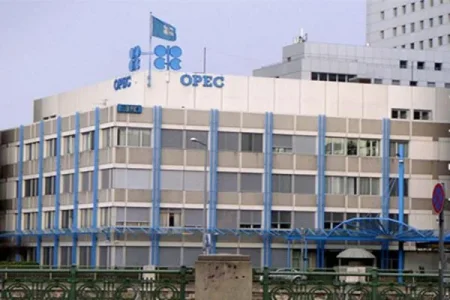
Oil prices fell sharply to $65 per barrel, the lowest since April 2021, due to escalating trade tensions and new tariffs imposed by China on U.S. goods. This drop coincided with OPEC's decision to increase oil output by 411,000 barrels per day, impacting global markets and Nigeria’s budget.
Oil prices took a significant hit on Friday, with Brent crude falling by 7% to $65.58 per barrel, marking its lowest level since April 2021. The drop also affected the US West Texas Intermediate (WTI), which plummeted by 7.35%, settling at $62.03 per barrel. This sharp decline comes amid a rising wave of trade tensions, triggered by new tariffs imposed by China on U.S. imports. The tariffs are part of a broader retaliatory strategy, including a 14% levy on Nigerian imports, stemming from the ongoing trade disputes that have fueled concerns over global economic stability.
The price slump also follows a decision by the Organization of Petroleum Exporting Countries (OPEC) and its allies, collectively known as OPEC+, to increase oil production by 411,000 barrels per day starting in May. This decision was made after a collective push from member countries to scale back on previous production cuts to stabilize global oil supply and prices.
The current oil price of $65 per barrel is far below Nigeria’s 2025 budget benchmark of $75, raising concerns about the potential impact on the nation’s economy. This decline in prices puts additional pressure on a country already grappling with rising fuel costs and economic uncertainty.
Experts warn that this continued fluctuation in oil prices could have long-term effects on global trade, with countries like Nigeria facing the brunt of the instability. As nations and businesses brace for further turbulence, the implications of the ongoing trade tensions remain a critical issue for global markets.




